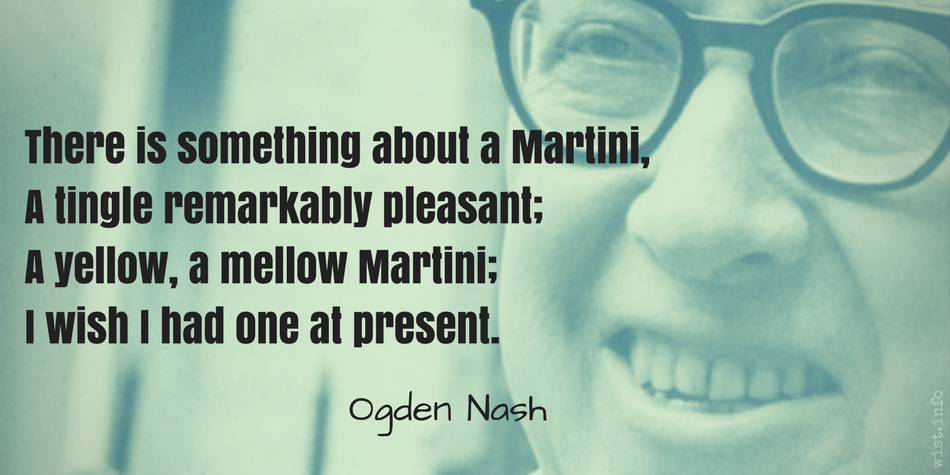Why then do I spend so many words on the subject of pleasure? Why, because, far from being a charge against old age, that it does not much feel the want of any pleasures, it is its highest praise. But, you will say, it is deprived of the pleasures of the table, the heaped up board, the rapid passing of the wine-cup. Well, then, it is also free from headache, disordered digestion, broken sleep. But if we must grant pleasure something, since we do not find it easy to resist its charms, — for Plato, with happy inspiration, calls pleasure “vice’s bait,” because of course men are caught by it as fish by a hook, — yet, although old age has to abstain from extravagant banquets, it is still capable of enjoying modest festivities.
[Quorsum igitur tam multa de voluptate? Quia non modo vituperatio nulla, sed etiam summa laus senectutis est, quod ea voluptates nullas magno opere desiderat. Caret epulis exstructisque mensis et frequentibus poculis. Caret ergo etiam vinulentia et cruditate et insomniis. Sed si aliquid dandum est voluptati, quoniam eius blanditiis non facile obsistimus, divine enim Plato “escam malorum” appellat voluptatem quod ea videlicet homines capiantur ut pisces, quamquam immoderatis epulis caret senectus, modicis tamen conviviis delectari potest.]Marcus Tullius Cicero (106-43 BC) Roman orator, statesman, philosopher
De Senectute [Cato Maior; On Old Age], ch. 13 / sec. 44 (13.44) (44 BC) [tr. Shuckburgh (1895)]
(Source)
The reference to Plato is to Timaeus, 69D: "κακοῦ δέλεαρ".
(Source (Latin)). Alternate translations:
Therfor thene ye may aske and demaunde why I haue said so many thynges of flesshely delyte and of lecherye, wherfor I answere you that the blame and the shame is not onely ynoughe. But namely it is the grete lawde and praysyng of olde age that it desyreth but lytle flesshely delectacyons. Olde age chargith nevir of dyetes nor of dyvers deynty metys nor of tables richely and dyversly arrayde nor of many dyners drynkys. Olde age wille not be fulle of wyn often for doubte of sekenes. Olde age wille not suffre the akyng of the bely as is the colyk or of the stone or costyfnes whiche comyth of takyng so muche mete and so often that it abideth rawe within the stomake. Olde age desyrith not wakyng in the tyme that nature hath ordeyned to slepe. Albeit an aged man is gretly disposed to wake ayenst his will forsoth the philosopher Platon whiche spake dyversly in a mater that delectacyon at∣tempted by euill disposed men that leyen the baite & the snare to delite aged men in repleccion of lustis & metys not helefull to them & bycause that men be taken & decevued by the baite sett in the hoke or angle as the bird is taken in the snare how be it that olde age wolde have no metys ne his etyngys excessiuely. Algatys they may delite in deynte metys and in smale feedyngys and temperate dyete.
[tr. Worcester/Worcester/Scrope (1481)]
But to what purpose do we speak so much of pleasure? Verily, to the intent that hereby it may be seen and proved, how that it cannot only not be objected to old age for any vituperation and dispraise, but rather for a singular praise and commendation; because old-age doth not esteem nor care for these pleasures. But some other will say: It lacketh sumptuous fare, costly dishes, delicate viands, and drinks of all sorts. Hereto I answer tihat, therefore, it lacketh also drunkenness, crudity, or indigestion, fantastical dreams, and ridiculous apparitions. But if we must any whit yield to to pleasure because we cannot easily resist the blandishments and allurements thereof (for the divine philosopher Plato calleth pleasure the bait of all mischief, because men therewith are caught and snared even as fishes are with the hook), I say, that although old age be not endangered nor given to superfluous and immoderate banqueting, and at unseasonable hours, yet in temperate and moderate feasting it may be solaced and comfortably recreated.
[tr. Newton (1569)]
But to what end speak we so much of pleasure? because that you may see that no blame, but much praise is to be given to age, because it doth not lust after pleasure, which is so dangerous a thing. Age wanteth banquetting, gluttony, and quaffing; it is also without surfeting, drunkennesse, or dreaming; but yet if we may any wayes take some pleasure, because we do not easily resist her flatteries (for divine Plato calleth pleasure the bait of evils, because men are caught ther∣with as fishes with a hook) tho age despiseth immoderate banquets, yet may it be delighted with moderate meetings.
[tr. Austin (1648), ch. 12-13]
Then to our age (when not to pleasures bent)
This seems an honour, not disparagement.
We, not all pleasures like the Stoicks hate;
But love and seek those which are moderate.
(Though Divine Plato thus of pleasures thought,
They us, with hooks and baits, like fishes caught.)
[tr. Denham (1669)]
I have dwelt the longer on this Topick of bodily Pleasures, to shew, it is so far from being a Disparagement to our Age, to be deprived of these Enjoyments, that it is its greatest Praise and Commendation, that it even takes off our Inclinations from the violent Pursuit of them. Though we may not indulge our selves so freely in our Cups, though we do not relish the Pleasures of the most luxurious Provisions, will not our being freed from the fatal Consequences of Indigestion, and a disordered Imagination, make us ample amends? But if we must make some Allowances for Pleasure, and submit to its Blandishments (which Plato calls the Bait of humane Miseries, with which like Fishes we are tempted to the Hook). Though we are deprived of the Pleasure of immoderate Feasting, yet can we still relish the Charms of an agreeable and chearful Entertainment; which arises not from the Delicacy or Variety of Courses, but from the Conversation of the Company.
[tr. Hemming (1716)]
And why all this of Pleasure? Because not only to over-rule the Objection, but to shew that it is the greatest Encomium on Old Age, that he never ardently desires what we call Pleasure. Doth Age want Banquets, great Tables, and frequent Use of Wine? Confequently it is free from Drunkenness, Surfeits, and watchful Nights. But if we are any ways to give ourselves up to Pleasure, because we cannot altogether attend her Invitations, as Plato says, who calls it "a Bait for Evil, and that Men are taken with it as Fishes with a Hook," yet Old Age will abstain from Revelling, and take Delight only in moderate Entertainments.
[tr. J. D. (1744)]
Thus I judged it necessary to be the more full on this Head of Pleasure, and shew the Dangers of it, to the end you might clearly see, it is so far from being a Disadvantage to Old-Age, its Palling our Inclinations to Pleasure, that on the contrary it is rather a great and valuable Blessing. For if it is in a good Measure dead to the Enjoyments others find in Banqueting, sumptuous Feasts and Carousings, it is freed at the same time from all the troublesome Effects of these; as Fumes, Crudities, uneasy Sleep, or the want of it; with divers other such like Disorders. Yet as Nature has so ordered it, that Pleasure should have a very strong Hold of us, and the Inclination to it appears deeply founded in our very Composition, (and 'tis with too much Justice that the divine Plato calls it the Bait of Evil, by which Men are caught as Fish with a Hook) therefore, though Age is not taken, nor can well bear, with those splendid sumptuous Feastings and Revels, yet we are not so insensible to the Pleasures of Life, but that we can indulge ourselves, and take a real Delight in sober and temperate Entertainments with our Friends.
[tr. Logan (1744)]
I have dwelt the longer upon this article, in order to convince you, that the little relish which old age leaves us for enjoyments of the sensual kind, is so far from being a just imputation on this period of life, that on the contrary it very considerably raises its value. If age render us incapable of taking an equal share in the flowing cups, and luxuriant dishes of splendid tables, it secures us too from their unhappy consequences -- from painful indigestions, restless nights, and disordered reason. Accordingly, the divine Plato justly represents pleasure as the bait by which vice ensnares and captivates her deluded votaries. But if this enticement cannot always be resisted, if the palate must sometimes be indulged, I do not scruple to say that an old man, although his years will guard him from excess, is by no means excluded from enjoying, in a moderate degree, the convivial gratifications.
[tr. Melmoth (1773)]
With what view then do I say so much about pleasure? Because not only is it no ground of censure, but even the highest praise of old age, that it desires no pleasures very much. But is old age without feasts, and loaded tables, and frequent cups? Therefore it is without drunkenness, and indigestion and troubled sleep. But if something must be given to pleasure, since we do not easily withstand its blandishments, (for divinely Plato calls pleasure the bait of evils, because evidently men are taken by it as fishes by a hook,) though old age is debarred immoderate feasts, yet, it may be gratified with temperate socialities.
[Cornish Bros. ed. (1847)]
To what end then have I said so many things about pleasure? Because it is so far from being any disparagement, that it is even the highest praise to old age, that it has no great desire for any pleasures. It lacks banquets, and piled up boards, and fast-coming goblets; it is therefore also free from drunkenness and indigestion and sleeplessness. But if something must be conceded to pleasure (since we do not easily withstand its allurements, for Plato beautifully calls pleasure the bait of evils, inasmuch as, by it, in fact, men are caught as fishes with a hook), although old age has nothing to do with extravagant banquets, yet in reasonable entertainments it can experience pleasure.
[tr. Edmonds (1874)]
But to what purpose am I saying so much about pleasure? Because it is not only no reproach to old age, but even its highest merit, that it does not severely feel the loss of bodily pleasures. But, you may say, it must dispense with sumptuous feasts, and loaded tables, and oft-drained cups. True, but it equally dispenses with sottishness, and indigestion, and troubled dreams. But if any license is to be given to pleasure, seeing that we do not easily resist its allurements, -- insomuch that Plato calls pleasure the bait of evil, because, forsooth, men are caught by it as fishes by the hook, -- old age, while it dispenses with excessive feasting, yet can find delight in moderate conviviality.
[tr. Peabody (1884)]
But why so much of pleasure? Why, you see,
Not only is it no disgrace to age,
But ev'n its greatest merit that it longs
No more for pleasure, cares no more for feasts
With loaded tables and o'er-flowing wine.
It misses too the headache, and the night
Of sickness and of sleeplessness that comes.
If something we must grant to pleasure's claim:
(It is not easy to resist its charm:
The godlike Plato thinks it is a bait
To catch the foolish, just as fish are caught:)
Though we cannot indulge in gorgeous feasts,
A modest dinner we can still enjoy.
[tr. Allison (1916)]
Why then, do I dwell at such length on pleasure? Because the fact that old age feels little longing for sensual pleasures not only is no cause for reproach, but rather is ground for the highest praise. Old age lacks the heavy banquet, the loaded table, and the oft-filled cup; therefore it also lacks drunkenness, indigestion, and loss of sleep. But if some concession must be made to pleasure, since her allurements are difficult to resist, and she is, as Plato happily says, “the bait of sin,” -- evidently because men are caught therewith like fish -- then I admit that old age, though it lacks immoderate banquets, may find delight in temperate repasts.
[tr. Falconer (1923)]
Why then do I have so much to say about pleasures of this kind? Because the weakening of temptation to indulge in them, far from supplying a pretext to reproach old age, is a reason for offering it the most cordial complements. Age has no banquets, no tables piled high, no cups filled again and again. So it avoids drunkenness, and indigestion, and sleepless nights! However, the allurements of pleasure are admittedly hard to resist; they are "the bait of sin," as Plato brilliantly calls them, which catch men like fish. If, then, we have to make them some concession, there is no reason why old age, though spared extravagant feasting, should not gratify itself with entertainments of a more modest nature.
[tr. Grant (1960, 1971 ed.)]
Why am I dwelling at such length on pleasure? Because it is not only no condemnation of old age, but rather its highest recommendation, that it feels no overwhelming desire for pleasure. The old do not share in banquets, in tables piled high with food, and in endless toasts; as a consequence, they do not share in drunkenness, in indigestion, and in sleeplessness. But if we must make some concession to pleasure, since we do not easily resist its blandishments (in a moment of inspiration Plato called pleasure “the bait of evil” -- obviously because men are caught by it like fish) -- even though the old do not share in unrestrained high life, still they can derive pleasure from moderate conviviality.
[tr. Copley (1967)]
Why do I go on so much about pleasure? As old men, we should not so much resent our age as praise it in the most glowing terms, because now we cannot feel any more interest in sensual temptations. As old men, we no longer attend formal banquets at tables loaded down with delicious food and wine; but on the other hand we no longer suffer from hangovers and indigestion and insomnia. But even so it may be hard to resist temptation completely. Plato cleverly referred to pleasure as “sin-bait,” because men are caught by it like fishes. There is, then, in our old age, nothing wrong with spending a convivial evening with friends, although we will not indulge ourselves to excess.
[tr. Cobbold (2012)]
So why am I going on and on about pleasure? Because I want to impress upon you how the fact that old age is less subject to the passions for pleasure is not an indictment of this stage of life, but actually one of its greatest advantages. If it lacks allnight parties, or tables heaped hy with rich food and powerful dirnk, it also lacks drunkenness, indigestion, insomnia, and "the morning after." It is not that old age lacks pleasures, it is that they change. And they are healthier. Gone are the overindulgent feasts and in their place we take pleasure in delightful dinner parties.
[tr. Gerberding (2014)]
So why do I tarry on pleasure’s enticement?
The fact that old age has no longing for it
Not only can’t be taken as a demerit,
But on the contrary is the best of credits.
Freedom from decked tables, from banquets
And also from frequent potations
Means freedom from drunkenness,
From insomnia and indigestions.
But we’re bound to make some concessions
To better resist pleasure’s alluring snares
Which Plato calls the bait of transgressions,
By which like fish men are caught unawares.
Although old age sumptuous banquets must shun
In light repasts it finds indeed some fun.
[tr. Bozzi (2015)]
Quotations about:
drinking
Note not all quotations have been tagged, so Search may find additional quotes on this topic.
BACCHUS, n. A convenient deity invented by the ancients as an excuse for getting drunk.
Ambrose Bierce (1842-1914?) American writer and journalist
“Bacchus,” The Cynic’s Word Book (1906)
(Source)
Included in The Devil's Dictionary (1911). Originally published in the "Devil's Dictionary" column in the San Francisco Wasp (1881-04-23).
A good heavy book holds you down. It’s an anchor that keeps you from getting up and having another gin and tonic. Many a person has been saved from summer alcoholism, not to mention hypertoxicity, by Dostoyevsky.
Roy Blount, Jr. (b. 1941) American writer, speaker, journalist, humorist
“Reading and Nothingness: Of Proust in the Summer Sun,” New York Times (1985-06-02)
(Source)
One night the wine was singing in the bottles:
“Mankind, dear waif, I send to you, in spite
Of prisoning glass and rosy wax that throttles,
A song that’s full of brotherhood and light.”[Un soir, l’âme du vin chantait dans les bouteilles:
«Homme, vers toi je pousse, ô cher déshérité,
Sous ma prison de verre et mes cires vermeilles,
Un chant plein de lumière et de fraternité!»]Charles Baudelaire (1821-1867) French poet, essayist, art critic
Les Fleurs du Mal [The Flowers of Evil], # 93 “L’Âme du vin [The Soul of Wine],” st. 1 (1857) [tr. Campbell (1952)]
(Source)
Also in the 1861 ed. (#104) and the 1868 ed. (#128). (Source (French)). Alternate translations:
One eve in the bottle sang the soul of wine:
"Man, unto thee, dear disinherited,
I sing a song of love and light divine --
Prisoned in glass beneath my seals of red."
[tr. Sturm (1905)]
One night, the soul of wine was singing in the flask:
"O man, dear disinherited! to you I sing
This song full of light and of brotherhood
From my prison of glass with its scarlet wax seals."
[tr. Aggeler (1954)]
[The Soul of Wine]
sang by night in its bottles: "Dear mankind,
dear and disinherited! Break the seal
of scarlet wax that darkens my glass jail,
and I shall bring you light and brotherhood!"
[tr. Howard (1982)]
One evening the wine's soul sang in the bottles, "Man, dear disinherited Man, from my glass prison with its scarlet seals of wax I send you a song which is full of light and brotherhood."
[tr. Scarfe (1986)]
One night, from bottles, sang the soul of wine:
"O misfit man, I send you for your good
Out of the glass and wax where I'm confined,
A melody of light and brotherhood!"
[tr. McGowan (1993)]
They that love Mirth, let them heartily Drink,
‘Tis the only Receipt to make Sorrow sink.Ben Jonson (1572-1637) English playwright and poet
“Private Entertainment of the King and Queen,” Highgate, London (1604-05-01)
(Source)
Receipt and recipe (both from the Latin recipe "you take this!") were originally used in English for medical formulations and prescriptions. "Receipt" was often abbreviated "Rt," which, as a ligature, looks like "℞" or "Rx" -- which is still used as an abbreviation a medical prescription.
When I stepped through the door, the sharp odor of gin hit me. Charlie was drowning his sorrows, and they apparently were dying hard.
You know a little drink now and then never hurt nobody, but when you can’t git started without asking the bottle, you in trouble.
If a man be discreet enough to take to hard drinking in his youth, before his general emptiness is ascertained, his friends invariably credit him with a host of shining qualities which, we are given to understand, lie balked and frustrated by his one unfortunate weakness.
Agnes Repplier (1855-1950) American writer
“A Plea for Humor,” Points of View (1891)
(Source)
Offered as a hypothetical sardonic observation by the author William Dean Howells.
To drink for pleasure may be a distraction, but to drink from misery is always a danger.
Drink was the most fearsome of deceivers […] for it promised one thing and came through with quite another.
Kay Boyle (1902-1992) American author, educator, political activist
Being Geniuses Together, 1920-1930, “Kay Boyle (1926-1928)” (1968) [with Robert McAlmon]
(Source)
Who says with last night’s wine Acerra stinks,
Is much deceived: till day Acerra drinks.[Hesterno fetere mero qui credit Acerram,
Fallitur: in lucem semper Acerra bibit.]Martial (AD c.39-c.103) Spanish Roman poet, satirist, epigrammatist [Marcus Valerius Martialis]
Epigrams [Epigrammata], Book 1, epigram 28 (1.28) (AD 85-86) [tr. Wright (1663)]
(Source)
(Source (Latin)). Alternate translations:
Acerra smells of last night's wine, you say.
Don't wrong Acerra: he topes on till day.
[tr. Elphinston (1782), Book 12, ep. 117]
Whoever believes it is of yesterday's wine that Acerra smells, is mistaken: Acerra always drinks till morning.
[tr. Bohn's Classical (1859)]
Lest you think Afer smells of his yesterday's wine
I give warning
That Afer continues potating each night
Till it's morning.
[tr. Nixon (1911), "By the Book"]
He who fancies that Acerra reeks of yesterday's wine is wrong. Acerra always drinks till daylight.
[tr. Ker (1919)]
He reeks, you might think, of his yesterday's drink;
But knowing his customs and ways,
You are wrong, I'll be sworn, for he drank till the morn,
So the savour is truly today's.
[tr. Pott & Wright (1921)]
You say he still reeked of last night's wine
When he spoke to you, stifling a yawn?
Oh no, you are wrong, you're mistaken, sir!
He always drinks till dawn.
[tr. Marcellino (1968)]
Acerra reeks of last night's wine?
No. He drinks on into the sunshine.
[tr. Bovie (1970)]
Anybody who thinks that Acerra reeks of yesterday's wine misses his guess. Acerra always drinks till sunrise.
[tr. Shackleton Bailey (1993)]
They claimed, with blamings not condign,
He reeked at morn of last night's wine.
He intermits not in such ways:
Not last night's wine -- it was today's.
[tr. Wills (2007)]
Whoever thinks Acerra stinks of last night's wine
is wrong. He drinks till light begins to shine.
[tr. McLean (2014)]
To say Acerra stinks of day-old booze is wrong!
Each drink is freshened all night long!
[tr. Juster (2016)]
The fact I asked you last night
To come round this evening and dine,
Procillus, would seem to be due
To that fifth or sixth bottle of wine.
To think it entirely arranged
And take notes on the nonsense you hear
Is a hazardous way to behave —
D–n a drinker whose memory’s clear![Hesterna tibi nocte dixeramus,
Quincunces puto post decem peractos,
Cenares hodie, Procille, mecum.
Tu factam tibi rem statim putasti
Et non sobria verba subnotasti
Exemplo nimium periculoso:
Μισῶ μνάμονα συμπόταν, Procille.]Martial (AD c.39-c.103) Spanish Roman poet, satirist, epigrammatist [Marcus Valerius Martialis]
Epigrams [Epigrammata], Book 1, epigram 27 (1.27) (AD 85-86) [tr. Nixon (1911), “A Alleybi’s the Thing”]
(Source)
"To Procillus." The Greek phrase, attested to elsewhere in Classical literature, reads, as variously translated here, "I dislike a drinking companion who remembers."
(Source (Latin)). Alternate translations:
I had this day carroust the thirteenth cup,
And was both slipper-tong'd, and idle-brain'd,
And said by chance, that you with me should sup.
You thought hereby, a supper cleerely gain'd:
And in your Tables you did quote it up.
Uncivill ghest, that hath been so ill train'd!
Worthy thou are hence supperlesse to walke,
That tak'st advantage of our Table-talke.
[tr. Harington (fl. c. 1600)]
To sup with me, to thee I did propound,
But 'twas when our full cups had oft gone round.
The thing thou straight concludest to be done,
Merry and sober words counting all one.
Th' example's dangerous at the highest rate;
A memorative drunkard all men hate.
[tr. Killigrew (1695)]
Yesternight, it seems, I swore,
Fifty bumpers hardly o'er,
You should sup tonight with me;
Instant you devour'd the glee;
And would bind the words of drink:
Dang'rous precedent, I think.
Wofull partner of the bowl,
Proves a reminiscent soul.
[tr. Elphinston (1782), Book 7, ep. 17]
Last night I had invited you -- after some fifty glasses, I suppose, had been despatched -- to sup with me today. You immediately thought your fortune was made, and took note of my unsober words, with a precedent but too dangerous. I hate a boon companion whose memory is good, Procillus.
[tr. Bohn's Classical (1859)]
Last night I said to you (I think it was after I had got through ten half-pints): "Dine with me today, Procillus." You at once thought the matter settled for you, and took secret note of my unsober remark -- a precedent too dangerous! "I hate a messmate with a memory," Procillus.
[tr. Ker (1919)]
I may have asked you here to dine,
But that was late at night,
And none of us had spared the wine
If I remember right.
You thought the invitation meant,
Though wine obscured my wit!
And -- O most parous precedent --
You made a note of it!
The maxim that in Greece was true
Is true in Rome today --
"I hate a fellow-toper who
Remembers what I say."
[tr. Pott & Wright (1921), "'Tis Wise to Forget"]
After ten cups were put away
I said, "Procillus," yesterday,
"You'll dine with me, my friend, you're wanted."
You promptly took the thing for granted
And made a note without formality
Of my incautious hospitality;
A dangerous precedent to set;
I hate a guest who won't forget.
[tr. Francis & Tatum (1924), #16]
Last night I said, while feeling fine,
Having drunk much too much wine,
That you must promise, when this way,
To stop and dine with me some day.
You made a mental note of it,
A practice which, I must admit --
Taking me at my drunken word! --
Is dangerous and quite absurds.
Barroom promises are fine,
But he who keeps them is a swine!
[tr. Marcellino (1968)]
Last night in my cups,
or my brandy tumbler, at least,
I asked you for dinner today.
But you took me seriously, Procillus,
and noted down carefully the words I spouted
under the influence. A dangerous business.
I don't like to drink with people who remember.
[tr. Bovie (1970)]
Last night, after five pints of wine,
I said, "Procillus, come and dine
Tomorrow." You assumed I meant
What I said (a dangerous precedent)
And slyly jotted down a note
Of my drunk offer. Let me quote
A proverb from the Greek: "I hate
An unforgetful drinking mate."
[tr. Michie (1972)]
Last night when I was carried off with wine
I made you promise to drop by and dine
With me today. Only a fool or a turd
Expects a drunken man to keep his word.
[tr. O'Connell (1991), "Bummer"]
Last night after getting through four pints or so I asked you to dine with me this evening, Procillus. You thought you had the matter settled then and there, and made a mental note of my tipsy words -- a very dangerous precedent. I don't like a boozing partner with a memory, Procillus.
[tr. Shackleton Bailey (1993)]
When drinks I had beyond my number,
I thought I would myself encumber
With a pledge to give you lunch today.
You wrote it down with great display
As if to register disputed votes.
I hate a tippler taking notes.
[tr. Wills (2007)]
Last night, Procillus, after I had drunk
four pints or so, I asked if you would dine
with me today. At once, you thought the matter
was settled, based on statements blurred by wine --
a risky precedent. Good memory
is odious in one who drinks with me.
[tr. McLean (2014)]
Last night I invited you,
after we killed, what, fifty-something cups,
to come and eat some food with me today.
Right then and there you thought the thing was done
and took me at my not-so-sober word.
A very risky thing to do: I hate
a drinking bud whose memory is good.
[tr. Goldman (2022)]
Let me explain, young man, the two blessings of human life.
Firstly Demeter, Mother Earth — call her what you will —
sustains us mortals with the gift of grain, of solid food.
But he who came next — son of Semele —
matched her gift to man: he brought us wine.
And wine brought peace to the troubled mind,
gave an end to grief, and gave us sleep — blessed sleep —
a forgetting of our sadness.[δύο γάρ, ὦ νεανία,
τὰ πρῶτ᾽ ἐν ἀνθρώποισι: Δημήτηρ θεά —
γῆ δ᾽ ἐστίν, ὄνομα δ᾽ ὁπότερον βούλῃ κάλει:
αὕτη μὲν ἐν ξηροῖσιν ἐκτρέφει βροτούς:
ὃς δ᾽ ἦλθ᾽ ἔπειτ᾽, ἀντίπαλον ὁ Σεμέλης γόνος
βότρυος ὑγρὸν πῶμ᾽ ηὗρε κεἰσηνέγκατο
280θνητοῖς, ὃ παύει τοὺς ταλαιπώρους βροτοὺς
λύπης, ὅταν πλησθῶσιν ἀμπέλου ῥοῆς,
ὕπνον τε λήθην τῶν καθ᾽ ἡμέραν κακῶν
δίδωσιν, οὐδ᾽ ἔστ᾽ ἄλλο φάρμακον πόνων.]Euripides (485?-406? BC) Greek tragic dramatist
Bacchæ [Βάκχαι], l. 274ff [Tiresias/Τειρεσίας] (405 BC) [tr. Robertson (2014)]
(Source)
To Pentheus, discussing Dionysus. (Source (Greek)). Alternate translations:
The two chief rulers of this nether world,
Proud boy, are Ceres, Goddess most benign,
Or Earth, (distinguish her by either name)
Who nourishes mankind with solid food:
Yet hath the son of Semele discover'd,
And introduc'd, the grape's delicious draught,
Which vies with her, which causes every grief
To cease among the wretched tribes of men,
With the enlivening beverage of the vine
Whenever they are fill'd; he also gives
Sleep, sweet oblivion to our daily cares,
Than which no medicine is with greater power
Endued to heal our anguish.
[tr. Wodhull (1809)]
For two things, young man, are first among men: the goddess Demeter -- she is the earth, but call her whatever name you wish; she nourishes mortals with dry food; but he who came afterwards, the offspring of Semele, discovered a match to it, the liquid drink of the grape, and introduced it to mortals. It releases wretched mortals from grief, whenever they are filled with the stream of the vine, and gives them sleep, a means of forgetting their daily troubles, nor is there another cure for hardships.
[tr. Buckley (1850)]
Youth! there are two things
Man's primal need, Demeter, the boon Goddess
(Or rather will ye call her Mother Earth?),
With solid food maintains the race of man.
He, on the other hand, the son of Semele,
Found out the grape's rich juice, and taught us mortals
That which beguiles the miserable of mankind
Of sorrow, when they quaff the vine's rich stream.
Sleep too, and drowsy oblivion of care
He gives, all-healing medicine of our woes.
[tr. Milman (1865)]
Two names, vain youth,
Rank first among mankind : Demeter one,
And Ge the other; give which name thou willest.
She nurtures man, but quenches not his thirst;
The son of Semele has helped this want:
He finds and grants to men the grape’s rich draught;
He takes away the woe of wearied souls,
Filling sad hearts with the vine’s ruddy stream;
And gives them sleep, the cure of daily grief,
The only drug which lightens human ills.
[tr. Rogers (1872), l. 262ff]
Two things there are, young prince, that hold first rank among men, the goddess Demeter, that is, the earth, -- call her which name thou please; she it is that feedeth men with solid food; and as her counterpart came this god, the son of Semele, who discovered the juice of the grape and introduced it to mankind, stilling thereby each grief that mortals suffer from, soon as e’er they are filled with the juice of the vine; and sleep also he giveth, sleep that brings forgetfulness of daily ills, the sovereign charm for all our woe.
[tr. Coleridge (1891)]
Two chiefest Powers,
Prince, among men there are: divine Demeter --
Earth is she, name her by which name thou wilt; --
She upon dry food nurtureth mortal men:
Then followeth Semelê's Son; to match her gift
The cluster's flowing draught he found, and gave
To mortals, which gives rest from grief to men
Woe-worn, soon as the vine's stream filleth them.
And sleep, the oblivion of our daily ills,
He gives -- there is none other balm for toils.
[tr. Way (1898)]
Young Prince, that in man's world are first of worth.
Dêmêtêr one is named; she is the Earth --
Call her which name thou will! -- who feeds man's frame
With sustenance of things dry. And that which came
Her work to perfect, second, is the Power
From Semelê born. He found the liquid shower
Hid in the grape. He rests man's spirit dim
From grieving, when the vine exalteth him.
He giveth sleep to sink the fretful day
In cool forgetting. Is there any way
With man's sore heart, save only to forget?
[tr. Murray (1902)]
Mankind, young man, possesses two supreme blessings.
First of these is the goddess Demeter, or Earth
whichever name you choose to call her by.
It was she who gave to man his nourishment of grain.
But after her there came the son of Semele,
who matched her present by inventing liquid wine
as his gift to man. For filled with that good gift,
suffering mankind forgets its grief; from it
comes sleep; with it oblivion of the troubles
of the day. There is no other medicine
for misery.
[tr. Arrowsmith (1960)]
For there are two things, young man,
that are first among humans: the goddess Demeter
(she is the earth; call her which name you like) --
she nourishes men by way of dry food;
and he who filled the complementary role, Semele's offspring,
discovered the grape-cluster's liquid drink and introduced it
to mortals, that which stops wretched men
from suffering, when they are filled with the stream of the vine,
and gives sleep as oblivion of the evils that happen by day;
nor is there any other cure against distress.
[tr. Kirk (1970)]
There are two powers, young man, which are supreme in human affairs: first, the goddess Demeter, she is the Earth -- call her by what name you will; and she supplies mankind with solid food. Second, Dionysus the son of Semele; the blessing he provides is the counterpart to the blessing of bread; he discovered and bestowed on men the service of drink, the juice that streams from the vine-clusters; men have but to take their fill of wine, and the sufferings of an unhappy race are banished, each day's troubles are forgotten in sleep -- indeed this is our only cure for the weariness of life.
[tr. Vellacott (1973)]
Think of two principles, two supreme
Principles in life. First, the principle
Of earth, Demeter, goddess of sil or what you will.
That nourishes man, yields him grain. Bread. Womb-like
It earths him as it were, anchors his feet.
Second, the opposite, and complementary principle --
Ether, locked in the grape until released by man.
For after Demeter came the son of Semele
And matched her present with the juice of grapes.
Think of it as more than drug for pain
Though it is that.
We wash our souls, our parched
Aching souls in streams of wine and enter
Sleep and oblivion. Filled with this good gift
Mankind forgets its grief.
[tr. Soyinka (1973)]
Two things, my boy,
are primary for men: goddess Demeter
(that’s Earth, call her whichever name you like),
the nourisher of mortals in dry food;
next comes her rival, the child of Semele:
the cluster’s wet drink he found and introduced
to men, that stops poor mortals their distress
when they are filled to flowing with the vine,
giver of sleep, forgetfulness of daily ills,
[tr. Neuburg (1988)]
Young man,
two are the forces most precious to mankind.
The first is Demeter, the Goddess.
She is the Earth -- or any name you wish to call her --
and she sustains humanity with solid food.
Next came the son of the virgin, Dionysus,
bringing the counterpart to bread, wine
and the blessings of life's flowing juices.
His blood, the blood of the grape,
lightens the burden of our mortal misery.
When, after their daily toils, men drink their fill,
sleep comes to them, bringing release form all their troubles.
There is no other cure for sorrow.
[tr. Cacoyannis (1982)]
Two things, young man,
Are first among mankind: Demeter,
She's the Earth -- call her by either name --
Who nourishes mortals with dry food.
The other, who came after, the seed
Of Semele, discovered Demeter's wet rival,
The drink of the grap, brought it to man
To ease pain for suffering mortals,
When they are filled with the flowing vine,
And to give sleep, forgetful of daily life.
There is no other cure for pain.
[tr. Blessington (1993)]
For there are two things, young man,
that are the primary elements among humans. First there’s the goddess Demeter.
She’s the earth But you can call her by whatever name you wish.
She nourishes mortals with dry foods. But he who came afterward,
Semele’s offspring, discovered the wet drink of the grape
as a counter-balance to Demeter’s bread. He introduced it
to mortals to stop their sorrow and pain.
Whenever men are filled with the stream of the grape-vine
they can sleep and forget the evils of the day.
No other medicine alleviates human suffering.
[tr. Esposito (1998)]
Young man, there are two
first principles in human life: the goddess Demeter --
or earth -- you may use what name you like --
who nourishes us by means of the dry element;
and the second one balances her exactly, that’s
Semélê’s child, who discovered, in the wet element,
a drink from grapes, a drink he delivered to us.
This brings relief from pain for long-suffering mortals
when they are filled with the vineyard’s bounty;
it grants sleep, lets them forget the evils of the day,
and there is no other cure for trouble.
[tr. Woodruff (1999)]
Young man -- there are two great first things that we
as mortals have: the goddess of the Earth,
Deméter -- call her by whatever name
You wish -- gave us our solid food, and he
Who came next, Semélê’s child, gave us liquid --
From the grape -- as a counterpart to Deméter's bread.
The god's invention, it give sus poor mortals
Release from pain and sorrow, when we're filled
With what flows from the vine; it gives us sleep,
When we can forget the evils of the day.
Nor for us mortals can another drug
For suffering surpass it.
[tr. Gibbons/Segal (2000), l. 321]
Two things are chief among mortals, young man: the goddess Demeter -- she is Earth but call her either name you like -- nourishes mortals with dry food. But he who came next, the son of Semele, discovered as its counterpart the drink that flows from the grape cluster and introduced it to mortals. It is this that frees trouble-laden mortals from their pain -- when they fill themselves with the juice of the vine -- this that gives sleep to make one forget the day's troubles: there is no other treatment for misery.
[tr. Kovacs (2002)]
There are two things in this world, young prince, that have been gifted to mankind. The first is the goddess Demeter or the earth, if you wish to call her so, or any other name you would give her, who feeds us mortals with solid food. The second is the son of Semele, who brought us the liquid hidden in the grape. This is no small gift, for when else can mortals loose the ties of their grief? It is wine -- that slips away the ragged robes of the day, sinking us into cool forgetting.
[tr. Rao/Wolf (2004)]
There are two things, young man that are most important to people: It is goddess Demetre (call her by whatever other name you want) who feeds the folk on Earth and who IS Earth; and her counterpart, Dionysos, the son of Semele, this god, the god who discovered the juice of the grape and which he brought to us mortals. This liquid holds back the pain of the tortured soul, gives soft sleep to folk and lets them forget their daily suffering. There’s truly no better medicine for pain or fatigue.
[tr. Theodoridis (2005)]
For there are two things, young one, two, that are
first among humans: One is the goddess Demeter --
and she is earth, call her whatever you will --
it is she who nourishes mortals in corn and grain;
but he who comes after, Semele's offspring, he invented them to match
the flowing drink of the grape and introduced it to mortals;
it gives wretched humans pause from pain when-
ever they are filled with the vine's stream,
and sleep, as aids to forget the troubles of the day:
there is no other drug that cures misery.
[tr. Valerie (2005)]
Young man, among human beings two things stand out preeminent, of highest rank. Goddess Demeter is one -- she's the earth (though can call her any name you wish), and she feeds mortal people cereal grains. The other one came later, born of Semele -- he brought with him liquor from the grape, something to match the bread from Demeter. He introduced it among mortal men. When they can drink, up what streams off the vine, unhappy mortals are released from pain. It grants them sleep, allows them to forget their daily troubles. Apart from wine, there is no cure for human hardship.
[tr. Johnston (2008)]
For there are two things, young man, two that are prized above all else by men. The first is the goddess Demeter, for she is the Earth. Call her whichever you prefer. It is she who brings forth solid food from the earth. Dry goods, if you will. But her junior, Semele’s child, showed us the other side of the coin, found the nectar in a bunch of grapes and gave it to mortals, letting them be free of pain when they partake of the river-of-the-vine. He gives us sleep, to forget the evils of the day for a time, and there is no better prescription for pain.
[tr. Pauly (2019)]
But let me tell you there are two powers over us, sometimes called "the dry" and "the wet." The first is personified by the goddess Demeter or Earth -- whichever you wish to call her; she nourishes mortals with dry food, with bread. This new god, Semele's child, has come with a matching gift, a crystalline liquid from clustered grapes which he generously brought to end all human suffering. Wine fills the emptiness in the grieved heart and helps us forget in blissful sleep. Hsi is the only medicine to cure our pain.
[tr. Behr/Foster (2019)]
Two things, young man, have supremacy among humans: The goddess Demeter -- she is the earth, but call her whatever name you wish -- nourishes mortals with dry food. But he who came then, the offspring of Semele, invented a rival, the wet drink of the grape, and introduced it to mortals. It releases wretched mortals from their pains, whenever they are filled with the stream of the vine, and gives them sleep, a means of forgetting their daily woes. There is no other cure for pains [ponoi].
[tr. Buckley/Sens/Nagy (2020)]
Stories of our women leaving home to frisk
in mock ecstasies among the thickets on the mountain,
dancing in honor of the latest divinity,
a certain Dionysus, whoever he may be!
In their midst stand bowls brimming with wine.
And then, one by one, the women wander off
to hidden nooks where they serve the lusts of men.
Priestesses of Bacchus they claim they are,
but it’s really Aphrodite they adore.[γυναῖκας ἡμῖν δώματ᾽ ἐκλελοιπέναι
πλασταῖσι βακχείαισιν, ἐν δὲ δασκίοις
ὄρεσι θοάζειν, τὸν νεωστὶ δαίμονα
Διόνυσον, ὅστις ἔστι, τιμώσας χοροῖς:
πλήρεις δὲ θιάσοις ἐν μέσοισιν ἑστάναι
κρατῆρας, ἄλλην δ᾽ ἄλλοσ᾽ εἰς ἐρημίαν
πτώσσουσαν εὐναῖς ἀρσένων ὑπηρετεῖν,
πρόφασιν μὲν ὡς δὴ μαινάδας θυοσκόους,
τὴν δ᾽ Ἀφροδίτην πρόσθ᾽ ἄγειν τοῦ Βακχίου.]Euripides (485?-406? BC) Greek tragic dramatist
Bacchæ [Βάκχαι], l. 217ff [Pentheus/Πενθεύς] (405 BC) [tr. Arrowsmith (1960)]
(Source)
(Source (Greek)). Alternate translations:
Their homes
Our women have deserted, on pretence
That they in mystic orgies are engaged;
On the umbrageous hills they chant the praise
Of this new God, whoe'er he be, this Bacchus;
Him in their dances they revere, and place
Amid their ranks huge goblets fraught with wine:
Some fly to pathless deserts, where they meet
Their paramours, while they in outward shew
Are Mænedes by holy rites engrossed.
Yet Venus more than Bacchus they revere.
[tr. Wodhull (1809)]
The women have left our homes in contrived Bacchic rites, and rush about in the shadowy mountains, honoring with dances this new deity Dionysus, whoever he is. I hear that mixing-bowls stand full in the midst of their assemblies, and that they each creep off different ways into secrecy to serve the beds of men, on the pretext that they are Maenads worshipping; but they consider Aphrodite before Bacchus.
[tr. Buckley (1850)]
Our women all have left their homes, to join
These fabled mysteries. On the shadowy rocks
Frequent they sit, this God of yesterday,
Dionysus, whosoe'er he be, with revels
Dishonorable honoring. In the midst
Stand the crowned goblets; and each stealing forth,
This way and that, creeps to a lawless bed;
In pretext, holy sacrificing Mænads,
But serving Aphrodite more than Bacchus.
[tr. Milman (1865)]
Our women have deserted from their homes,
Pretending Bacchic rites, and now they lurk
In the shady hill-tops reverencing forsooth
This Dionysus, this new deity.
Full bowls of wine are served out to the throng;
And scattered here and there through the glades,
The wantons hurry to licentious love.
They call themselves the priestess Mænades;
Bacchus invoke, but Aphrodite serve.
[tr. Rogers (1872), l. 200ff]
I hear that our women-folk have left their homes on pretence of Bacchic rites, and on the wooded hills rush wildly to and fro, honouring in the dance this new god Dionysus, whoe’er he is; and in the midst of each revel-rout the brimming wine-bowl stands, and one by one they steal away to lonely spots to gratify their lust, pretending forsooth that they are Mænads bent on sacrifice, though it is Aphrodite they are placing before the Bacchic god.
[tr. Coleridge (1891)]
How from their homes our women have gone forth
Feigning a Bacchic rapture, and rove wild
O'er wooded hills, in dances honouring
Dionysus, this new God -- whoe'er he be.
And midst each revel-rout the wine-bowls stand
Brimmed: and to lonely nooks, some here, some there,
They steal, to work with men the deed of shame,
In pretext Maenad priestesses, forsooth,
But honouring Aphroditê more than Bacchus.
[tr. Way (1898)]
Our own
Wives, our own sisters, from their hearths are flown
To wild and secret rites; and cluster there
High on the shadowy hills, with dance and prayer
To adore this new-made God, this Dionyse,
Whate'er he be! -- And in their companies
Deep wine-jars stand, and ever and anon
Away into the loneliness now one
Steals forth, and now a second, maid or dame,
Where love lies waiting, not of God! The flame,
They say, of Bacchios wraps them. Bacchios! Nay,
'Tis more to Aphrodite that they pray.
[tr. Murray (1902)]
That our women have abandoned their homes
in fake bacchic revels, and in the deep-shaded
mountains are roaming around, honoring with dances
the new-made god Dionysus, whoever he is;
that wine-bowls are set among the sacred companies
full to the brim, and that one by one the women go crouching
into the wilderness, to serve the lechery of men --
they profess to be maenads making sacrifice,
but actually they put Aphrodite before the Bacchic god.
[tr. Kirk (1970)]
Our women, I discover, have abandoned their homes on some pretence of Bacchic worship, and go gadding about in the woods on the mountain side, dancing in honour of this upstart god Dionysus, whoever he may be. They tell me, in the midst of each group of revellers stands a bowl full of wine; and the women go creeping off this way and that to lonely places and there give themselves to lecherous men, under the excuse that they are Maenad priestesses; though in their ritual Aphrodite comes before Bacchus.
[tr. Vellacott (1973)]
They leave their home, desert their children
Follow the new fashion and join the Bacchae
Flee the hearth to mob the mountains -- those contain
Deep shadows of course, secret caves to hide
Lewd games for this new god -- Dionysos!
That's the holy spirit newly discovered.
Dionysos! Their ecstasy is flooded down
In brimming bowls of wine -- so much for piety!
Soused, with all the senses roused, they crawl
Into the bushes and there of course a man
Awaits them. All part of the service for for this
Mysterious deity. The hypocrisy? All they care about
Is getting serviced.
[tr. Soyinka (1973)]
Our women gone, abandoning their homes,
pretending to be bacchae, massing
in the bushy mountains, this latest divinity
Dionysos (whoever he is) honouring and chorusing,
filling and setting amidst the thiasus
wine-bowls, and one by one in solitude
sneaking off to cater to male bidding, --
supposedly as sacrificial maenads,
but Aphrodite ranks before their Bacchic One.
[tr. Neuburg (1988)]
Our women, I am told, have left their homes,
in a religious trance -- what travesty! --
and scamper up and down the wooded mountains, dancing
in honor of this newfangled God, Dionysus,
whoever he might be.
In the middle of each female group
of revelers, I hear,
stands a jar of wine, brimming! And that taking turns,
they steal away, one here, one there, to shady nooks,
where they satisfy the lechery of men,
pretending to be priestesses,
performing their religious duties. Ha!
That performance reeks more of Aphrodite than of Bacchus.
[tr. Cacoyannis (1982)]
Our women have abandoned our homes
And, in a jacked-up frenzy of phony inspiration,
Riot in the dark mountains,
Honoring this upstart god, Dionysos --
Whatever he is -- dancing in his chorus.
Full jugs of wine stand in their midst
And each woman slinks off
To the wilderness to serve male lust,
Pretending they are praying priestesses,
But Aphrodite leads them, not Bacchus.
[tr. Blessington (1993)]
Our women have abandoned their homes
for the sham revelries of Bacchus
frisking about on the dark-shadowed mountains
honoring with their dances the latest god, Dionysius, whoever he is.
They've set up their mixing bowls brimming with wine
amidst their cult gatherings, and each lady slinks off in a different direction
to some secluded wilderness to service the lusts of men.
They pretend to be maenads performing sacrifices
but in reality they rank Aphrodite's pleasures before Bacchus!
[tr. Esposito (1998)]
These women of ours have left their homes
and run away to the dark mountains, pretending
to be Bacchants. It's this brand-new god,
Dionysus, whoever that is; they're dancing for him!
They gather in throngs around full bowls
of wine; then one by one they sneak away
to lonely places where they sleep with men.
Priestesses they call themselves! Maenads!
It's Aphrodite they put first, not Bacchus.
[tr. Woodruff (1999)]
Women leave
Our houses for bogus revels (“Bakkhic” indeed!),
Dashing through the dark shade of mountain forests
To honor with their dancing this new god,
Dionysos -- whoever he may be --
And right in their midst they set full bowls of wine,
And slink into the thickets to meet men there,
Saying they are maenads sacrificing
When they really rank Aphrodite first,
Over Bakkhos!
[tr. Gibbons/Segal (2000)]
The women have left our homes in fictitious ecstatic rites and flit about on the thick-shaded mountains, honoring the new god Dionysus, whoever he is, with their dancing. They set up full wine bowls in the middle of their assembles and sneak off, one here, one there, to tryst in private with men. The pretext for all of this is that they are maenads, performing their rites, but they hold Aphrodite in higher regard than the bacchic god.
[tr. Kovacs (2002)]
I hear our women have flown from their proper place in the home -- dancing about in the shadowy hills in sham ecstasy for this newfound Dionysus! And these wine-befuddled women slink into the darkness, drawn by the sirens of lust. Fine high priestesses of the new god! They seem to make more worship of Aphrodite than of Bacchus!
[tr. Rao/Wolf (2004)]
I heard that our women have left their homes and gone off to the mountains dancing the Bacchic dances! Some new, young god! Utter rubbish! There they are, placing great tubs full of wine in the centre of their group, in the middle of nowhere and off they go, one here, another there, rolling around with any man they come across and giving the excuse that they are maenads; but what are they doing? Serving Dionysos? No way! They’re serving Aphrodite!
[tr. Theodoridis (2005)]
The women have left us, abandoning their homes in
phony Bacchic worship and that they gad about on
the bushy mountaintops; that this "new" god Dio-
nysus, whoever he really is, is honoured in their dances,
and that they set the sacred wine-bowls, fill'd, in the
midst of the thiasoi, each slinking off her sep'rate
way to serve males' hot lust in the woods, pre-
tending to be Maenads sacrificing; and so
they place Aphrodite on top of Bacchus.
[tr. Valerie (2005)]
... women leaving home
to go to silly Bacchic rituals,
cavorting there in mountain shadows,
with dances honoring some upstart god,
this Dionysus, whoever he may be. Mixing bowls
in the middle of their meetings filled with wine,
they creep off one by one to lonsely spots
to have sex with men, claiming they're Maenads
busy worshipping. But they rank Aphrodite,
goddess of sexual desire, ahead of Bacchus.
[tr. Johnston (2008), l. 272ff]
Women have deserted their homes for these
fraudulent rites -- up in the woods and mountains,
dancing to celebrate some new god --
Dionysus, whoever he is.
Drink is at the bottom of it all.
Huge bowls stand in their midst, I'm told,
brimming with wine, and one by one the women
slip into the shadows to satisfy the lusts of men.
They say they are priestesses, sworn to Bacchus,
but it's clearly Aphrodite they adore.
[tr. Robertson (2014)]
Women have forsaken their homes. It’s a front, it’s a fake, a false Bacchic rite, an excuse for them to cavort in the mountain’s shade, dancing to honor this "new god" Dionysus.
Whoever that is. Whoever he really is.
I hear they’ve got casks of wine up there, full to the brim, just sitting there in the midst of their frolicking. And that they sneak off into secluded corners, servicing men, excusing it as a sacred thing, a Maenad’s ritual.
If it is a ritual, it’s to Aphrodite, not this Bacchus of theirs.
[tr. Pauly (2019)]
How our women
had run off
to celebrate
perferse rites
in the mountains,
roaming about with this
brand new god, Dionysus --
whoever he is.
Everywhere
in the midst of their revels
stand full wine bowls.
And women slink off
one by one
to copulate
with any man
who happens by.
They pretend to be Maenads, priestesses.
It's Aphrodite,
not Bacchus,
they worship.
[tr. Behr/Foster (2019)]
Our women have left our homes in contrived Bacchic rites, and rush about in the shadowy mountains, honoring with khoroi this new daimōn Dionysus, whoever he is. I hear that mixing-bowls stand full in the midst of their assemblies, and that each woman, flying to secrecy in different directions, yields to the embraces of men, on the pretext that they are Maenads worshipping. They consider Aphrodite of greater priority than Dionysus.
[tr. Buckley/Sens/Nagy (2020)]
A psychologist once said that we know little about the conscience except that it is soluble in alcohol.
Thomas Blackburn (1916-1977) British poet.
“The Contemporary Dream,” The London Review (Jan 1959)
(Source)
Sometimes misattributed to John Mortimer.
Aper’s teetotal. So what? I commend
Sobriety in a butler, not a friend.[Siccus, sobrius est Aper; quid ad me?
Servum sic ego laudo, non amicum]Martial (AD c.39-c.103) Spanish Roman poet, satirist, epigrammatist [Marcus Valerius Martialis]
Epigrams [Epigrammata], Book 12, epigram 30 (12.30) (AD 101) [tr. Michie (1972)]
(Source)
"On Aper." (Source (Latin)). Alternate translations:
Tom never drinks: that I should much commend
In Tom my coachman, but not Tom my friend.
[tr. Hay (1755)]
Frugal and sober, I commend
In both, my servant; not my friend.
[tr. Elphinston (1782), 12.114]
Ned is a sober fellow, they pretend --
Such would I have my coachman, not my friend.
[tr. Hoadley (fl. 18th C), §245]
Aper is abstemious and sober. What is that to me? For such a quality I praise my slave, not my friend.
[tr. Bohn's Classical (1859)]
"Now Aper is a sober man;
He never had a jag on."
Well, what of that? I wish my slaves,
Not friends, to hate a flagon.
[tr. Nixon (1911), "No Recommendation"]
Aper is abstemious, sober: what is that to me? A slave I praise so, not a friend.
[tr. Ker (1919)]
He's sober and abstemious? One commends
These qualities in slave, but not in friends.
[tr. Pott & Wright (1921)]
You're always sober, never drunk.
Such temperance is fine
In servants and domestics, but
Not in a friend of mine.
[tr. Marcellino (1968)]
Aper is dry and sober. What is that to me? I commend a slave so, not a friend.
[tr. Shackleton Bailey (1993)]
He's a clean and sober fellow?
Well, what's that mean to me?
He doesn't seem potential friend,
More like an employee.
[tr. Ericsson (1995)]
Aper is dry and sober. What good is that to me? It’s what I praise a slave for, not a friend!
[tr. @aleatorclassicus (2013)]
So what if Aper's sober! I commend
abstinence in a slave, not in a friend.
[tr. McLean (2014)]
Drink, the social glue of the human race. Probably in the beginning we could explain ourselves to our close family members with grunts, muttered syllables, gestures, slaps, and punches. Then when the neighbors started dropping in to help harvest, stomp, stir, and drink the bounty of the land, after we’d softened our natural suspicious hostility with a few stiff ones, we had to think up some more nuanced communications, like words. From there it was a short step to grammar, civil law, religion, history, and “The Whiffenpoof Song.”
We two will keep to the shelter here, eat and drink
and take some joy in each other’s heartbreaking sorrows,
sharing each other’s memories. Over the years, you know,
a man finds solace even in old sorrows, true, a man
who’s weathered many blows and wandered many miles.[νῶϊ δ᾽ ἐνὶ κλισίῃ πίνοντέ τε δαινυμένω τε
κήδεσιν ἀλλήλων τερπώμεθα λευγαλέοισι,
400μνωομένω: μετὰ γάρ τε καὶ ἄλγεσι τέρπεται ἀνήρ,
ὅς τις δὴ μάλα πολλὰ πάθῃ καὶ πόλλ᾽ ἐπαληθῇ.]Homer (fl. 7th-8th C. BC) Greek author
The Odyssey [Ὀδύσσεια], Book 15, l. 397ff (15.397) [Eumæus] (c. 700 BC) [tr. Fagles (1996)]
(Source)
(Source (Greek)). Alternate translations:
We two, still in our tabernacle here
Drinking and eating, will our bosoms cheer
With memories and tales of our annoys.
Betwixt his sorrows ev’ry human joys,
He most, who most hath felt and furthest err’d.
[tr. Chapman (1616)]
Meanwhile let us sit here, and drink and chat,
And stories of our sad adventures tell;
For much contentment there is ev’n in that,
To them that suffer’d have and come off well.
[tr. Hobbes (1675), l. 357ff]
Here let us feast, and to the feast be joined
Discourse, the sweeter banquet of the mind;
Review the series of our lives, and taste
The melancholy joy of evils passed:
For he who much has suffered, much will know,
And pleased remembrance builds delight on woe.
[tr. Pope (1725)]
But we with wine and a well-furnish’d board
Supplied, will solace mutually derive
From recollection of our sufferings past;
For who hath much endured, and wander’d far,
Finds the recital ev’n of sorrow sweet.
[tr. Cowper (1792), l. 483ff]
But we two, drinking wine and eating bread,
Will charm our dear hearts each with other's pain.
Past sorrow, and the tears a man hath shed,
Who far hath wandered over earth and main,
Yield comfort.
[tr. Worsley (1861), st. 55]
Let us, meanwhile,
Within this hut potations free enjoy,
And to our full contentment eat, while each
The mem'ry wakens of his own past griefs;
For, let but time enough elapse, the man
Who has sharp trials brook'd, and through the world
A wand'rer rov'd, will on his by-gone woe
Exulting dwell.
[tr. Musgrave (1869), l. 651ff]
We two in the hut a' drinking and a' feasting,
We'll soothe each other with our doleful cares
Recounting them! for even sorrows bring
An after pleasure to the wight, I ween, --
His many woes and many wandrings past.
[tr. Bigge-Wither (1869)]
But let us twain drink and feast within the steading, and each in his neighbour’s sorrows take delight, recalling them, for even the memory of griefs is a joy to a man who hath been sore tried and wandered far.
[tr. Butcher/Lang (1879)]
But here in the booth we twain at the drink and the banqueting
Shall be merry with the memory of each other's weary woe.
For very grief shall gladden the man that to and fro
Hath wandered wide the world, and suffered sorrow sore.
[tr. Morris (1887)]
But let us drink and feast within the lodge, and please ourselves with telling one another tales of piteous ill; for afterwards a man finds pleasure in his pains, when he has suffered logn and wandered long.
[tr. Palmer (1891)]
We too will sit here eating and drinking in the hut, and telling one another stories about our misfortunes; for when a man has suffered much, and been buffeted about in the world, he takes pleasure in recalling the memory of sorrows that have long gone by.
[tr. Butler (1898)]
But we two will drink and feast in the hut, and will take delight each in the other's grievous woes, as we recall them to mind. For in after time a man finds joy even in woes, whosoever has suffered much, and wandered much.
[tr. Murray (1919)]
But we two snugly indoors here may drink and eat and revel in an interchange of sorrows-- sorrows that are memories, I mean; for when a man has endured deeply and strayed far from home he can cull solace from the rehearsal of old griefs.
[tr. Lawrence (1932)]
Meanwhile let us two, here in the hut, over our food and wine, regale ourselves with the unhappy memories that each can recall. For a man who has been through bitter experiences and travelled far can enjoy even his sufferings after a time.
[tr. Rieu (1946)]
Here's a tight roof; we'll drink on, you and I, and ease our hearts of hardships we remember, sharing old times. In later days a man can find a charm in old adversity, exile and pain.
[tr. Fitzgerald (1961)]
But we two, sitting here in the shelter, eating and drinking,
shall entertain each other remembering and retelling
our sad sorrows. For afterwards a man who has suffered
much and wandered much has pleasure out of his sorrows.
[tr. Lattimore (1965)]
Meanwhile let us two have the satisfaction of sharing our unhappy memories over our food and wine here in the hut. For a man who has been through bitter experiences and travelled far enjoys even his sufferings after a time.
[tr. DCH Rieu (2002)]
We two will have our food and drink here in the hut and find pleasure in each other's sad troubles, as we call them to mind; for it is man's way to get enjoyment even from affliction, after the event, if he is a man who has suffered much and roamed far.
[tr. Verity (2016)]
Now let us dine and drink in my home
And take pleasure while we recall to one another
Our grievous pains. For a man may take pleasure even in pain,
Later, when he has suffered and come through so many things.
[tr. @sentantiq (2016)]
But let us, you and I, sit in my cottage over food and wine, and take some joy in hearing how much pain we each have suffered. After many years of agony and absence from one's home, a person can begin enjoying grief.
[tr. Wilson (2017)]
But we two will drink and feast in the hut, and enjoy hearing about each other's wretched misfortunes as we recall them. A man looking back can find pleasure even in grief, one who's suffered and wandered much.
[tr. Green (2018)]
But we two will drink and enjoy each other's sad stories.
[tr. Green (2018), summary version]
We two will drink and feast here in the hut
and enjoy each other’s wretched troubles,
as we recall them. For once they’re over,
a man who’s done a lot of wandering
and suffered much gets pleasure from his woes.
[tr. Johnston (2019), l. 509ff]
As we two drink and dine in this shelter
Let us take pleasure as we recall one another’s terrible pains.
For a man finds pleasure even in pains later on
After he has suffered so very many and survived many too.
[tr. @sentantiq [Joel] (2019)]
Let us take pleasure in calling to mind each other’s terrible pains
while we drink and dine in my home.
For someone may even find pleasure among pains
when they have suffered many and gone through much.
[tr. @sentantiq (2020)]
Listen to me, Eumaeus and all of you.
I am going to boast and tell you a story. This is the effect of wine —
it makes people do crazy things; it sets the wisest man
singing and giggling stupidly; it lures him on to dance
and it makes him blurt out what’s better left unsaid.[κέκλυθι νῦν, Εὔμαιε καὶ ἄλλοι πάντες ἑταῖροι,
εὐξάμενός τι ἔπος ἐρέω: οἶνος γὰρ ἀνώγει
ἠλεός, ὅς τ᾽ ἐφέηκε πολύφρονά περ μάλ᾽ ἀεῖσαι
καί θ᾽ ἁπαλὸν γελάσαι, καί τ᾽ ὀρχήσασθαι ἀνῆκε,
καί τι ἔπος προέηκεν ὅ περ τ᾽ ἄρρητον ἄμεινον.]Homer (fl. 7th-8th C. BC) Greek author
The Odyssey [Ὀδύσσεια], Book 14, l. 462ff (14.462) [Odysseus] (c. 700 BC) [tr. DCH Rieu (2002)]
(Source)
(Source (Greek)). Alternate translations:
Hear me, Eumæus, and my other friends,
I’ll use a speech that to my glory tends,
Since I have drunk wine past my usual guise.
Strong wine commands the fool and moves the wise,
Moves and impels him too to sing and dance,
And break in pleasant laughters, and, perchance,
Prefer a speech too that were better in.
[tr. Chapman (1616)]
Hear me, Eumæus, says he, and you folk,
I have a tale to tell. This foolish wine
To laugh and dance is able to provoke
Grave men sometimes that have no such design,
And to speak that which better were unspoke.
[tr. Hobbes (1675), l. 448ff]
Hear me, my friends! who this good banquet grace;
'Tis sweet to play the fool in time and place,
And wine can of their wits the wise beguile,
Make the sage frolic, and the serious smile,
The grave in merry measures frisk about,
And many a long-repented word bring out.
[tr. Pope (1725)]
Hear now, Eumæus, and ye other swains
His fellow-lab’rers! I shall somewhat boast,
By wine befool’d, which forces ev’n the wise
To carol loud, to titter and to dance,
And words to utter, oft, better suppress’d.
[tr. Cowper (1792), l. 567ff]
Hear now, Eumæus, and thy comrades all!
I speak for glory, since by wine made bold
Often to singing even the wise will fall,
Light laughter and the dance, nor can withhold
Words that in sooth were better far untold.
[tr. Worsley (1861), st. 59]
Hear, now, the words,
Eumaeus! and all you who with him serve!
To which, although to vaunt I may appear,
I must give utt'rance; for that crazing wine
Has set me on, which oft the wisest man
Ere now hat stirr'd up into noisy song,
or into burst of friv'lous laughter thrown,
Nay, even rous'd to dancing, or some speech
Impulsive prompted, which 'twere better far
Had ne'er been utter'd.
[tr. Musgrave (1869), l. 772ff]
Now list! Eumæus! and ye comrades all!
I'll glory somewhat in the tale I'll tell you;
For crazy wine urges me on to speak,
Which e'en a sage hat set to noisy singing;
And urged the shy to laughter loud and dancing;
And uttered words far better left unsaid!
[tr. Bigge-Wither (1869)]
Listen now, Eumaeus, and all of you his companions, with a prayer will I utter my word; so bids me witless wine, which drives even the wisest to sing and to laugh softly, and rouses him to dance, yea and makes him to speak out a word which were better unspoken.
[tr. Butcher/Lang (1879)]
Now hearken ye, Eumæus, and all our fellows here,
And a boasting word will I say; for befooling wine is strong
Within me: he who eggeth e'en the wise to raise the song
And laugh out softly, and dance for very lustihead,
And to say the word, it may be, that were better left unsaid.
[tr. Morris (1887)]
Hearken, Eumaeus, and all you other men, and I will boast a bit and tell a story; for crazy wine so bids, which sets a man, even if wise, to skinging loud and laughing lightly, and makes him dance and brings out stories really better left untold.
[tr. Palmer (1891)]
Listen to me, Eumæus and the rest of you; when I have said a prayer I will tell you something. It is the wine that makes me talk in this way; wine will make even a wise man fall to singing; it will make him chuckle and dance and say many a word that he had better leave unspoken
[tr. Butler (1898)]
Listen to me now, Eumaios and all you other companions [hetairoi]! Speaking proudly, I will tell you a wording [epos]. The wine, which sets me loose, is telling me to do so. Wine impels even the thinking man to sing and to laugh softly. And it urges him on to dance. It even prompts an epos that may be better left unsaid.
[tr. Butler (1898), rev. Kim/McCray/Nagy/Power (2018)]
Hear me now, Eumaeus and all the rest of you, his men, with a wish in my heart will I tell a tale; for the wine bids me, befooling wine, which sets one, even though he be right wise, to singing and laughing softly, and makes him stand up and dance, aye, and brings forth a word which were better unspoken.
[tr. Murray (1919)]
Hear me now, O Eumaeus and you others, while I let myself go as your wine's intoxication tempts me. Drink will set the most solid man singing or giggling with laughter; if indeed it does not push him forward to dance or make him blurt out something better left unsaid.
[tr. Lawrence (1932)]
Listen to me, Eumaeus and you men of his. I am going to put a wish of mine into the form of a story. This is the effect of your wine -- for wine is a crazy thing. It sets the wisest man singing and giggling like a girl; it lures him on to dance and it makes him blurt out what were better left unsaid.
[tr. Rieu (1946)]
Eumaios, and you others, here's a wishful
tale I shall tell. The wine's behind it,
vaporing wine, that makes a serious man
break down and sing, kick up his heels and clown,
or tell some story that were best untold.
[tr. Fitzgerald (1961)]
Hear me now, Eumaios and all you other companions.
What I say will be a bit of boasting. The mad wine tells me
to do it. Wine sets even a thoughtful man to singing,
or sets him into softly laughing, sets him to dancing.
Sometimes it tosses out a word that was better unspoken.
[tr. Lattimore (1965)]
Listen, Eumaeus, and all you comrades here,
allow me to sing my praises for a moment.
Say it's the wine that leads me on, the wild wine
that sets the wisest man to sing at the top of his lungs,
laugh like a fool -- it drives the man to dancing ... it even
tempts him to blurt out stories better never told.
[tr. Fagles (1996)]
Hear me now, Eumaeus, and the rest of you men,
While I boast a little. It must be the wine
Befuddling me, which gets even sensible men
Singing and laughing and up to dance,
And sometimes say things better left unsaid.
[tr. Lombardo (2000), l. 500ff]
Eumaeus and you others, all of you, I want to brag a little. I am dizzy, under the influence fo wine, which makes even the wisest people sing and giggle, and dance, and say things best not spoken.
[tr. Wilson (2017), l. 461ff]
Hear me out now, Eumaios, and you, all his other comrades, while I tell you a boastful story. It's the wine that's urging me -- mind-crazing stuff, that sets on even the quick-witted to singing and gentle laughter, drives him to get up and dance, or make some remark better left unspoken.
[tr. Green (2018)]
Eumaeus and you others, his work mates,
hear me now -- I wish to tell a story,
prompted by this wine, which addles our wits.
Wine can make a man, even though he’s wise,
sing out loud, or laugh softly to himself,
or leap up and dance. It can bring out words
which were better left unspoken.
[tr. Johnston (2019), l. 601ff]
Life is too short to drink bad wine.
Johann Wolfgang von Goethe (1749-1832) German poet, statesman, scientist
(Misattributed)
Often attributed to him, but not found in Goethe's works. The attribution, though, may come from translators' commentary on Goethe's West–Eastern Diwan, "The Book of the Cup-Bearer" (1819/1827), that refers to a poetic passage as deriving from Diez's 1811 translation of the Book of Kabus (Qabus):
It comes to this, that it is a sin to drink wine. If though, then committest sin, commit it at least for the best wine, for otherwise wouldst though on one part commit sin, and on another drink bad wine. By God! that would be the most sorrowful among sorrowful things. [tr. Rogers (1890)]
It so happens that wine-drinking is a sin. Hence, if you do commit this sin, do it at least with the best wine; otherwise, you'll commit the sin, on the one hand, and on the other, you'll drink bad wine. By God! That would be the sorriest of all sorry things. [tr. Ormsby (2019)]
More information: The Big Apple: “Life is too short to drink cheap wine”
His philosophy was a mixture of three famous schools — the Cynics, the Stoics and the Epicureans — and summed up all three of them in his famous phrase, “You can’t trust any bugger further than you can throw him, and there’s nothing you can do about it, so let’s have a drink.”
THERE ARE BETTER THINGS IN THE WORLD THAN ALCOHOL, ALBERT.
“Oh, yes, sir. But alcohol sort of compensates for not getting them.”Terry Pratchett (1948-2015) English author
Death’s Domain (1999)
(Source)
Death speaking with his manservant, Albert.
DEMOSTHENES: And dare you rail at wine’s inventiveness?
I tell you nothing has such go as wine.
Why, look you now; ’tis when men drink, they thrive,
Grow wealthy, speed their business, win their suits,
Make themselves happy, benefit their friends.
Go, fetch me out a stoup of wine, and let me
Moisten my wits, and utter something bright.Aristophanes (c. 450-c. 388 BC) Athenian comedic playwright
Knights, ll. 90-96 [tr. Rogers (1924)]
(Source)
Alt. trans.
- [O'Neill (1938)]: "Do you dare to accuse wine of clouding the reason? Quote me more marvellous effects than those of wine. Look! when a man drinks, he is rich, everything he touches succeeds, he gains lawsuits, is happy and helps his friends. Come, bring hither quick a flagon of wine, that I may soak my brain and get an ingenious idea."
- [Hickie (1853)]: "Have you the audacity to abuse wine for witlessness? Can you find anything more business-like than wine? Do you see? when men drink, then they are rich, they transact business, gain causes, are happy, assist their friends. Come, bring me out quickly a stoup of wine, that I may moisten my intellect, and say something clever."
Well, between Scotch and nothin’, I suppose I’d take Scotch. It’s the nearest thing to good moonshine I can find.
William Faulkner (1897-1962) American novelist
Quoted in The National Observer (3 Feb 1964)
At least one source breaks this into two quotations, with the second sentence comparing bourbon to moonshine.
There is something about a Martini,
A tingle remarkably pleasant;
A yellow, a mellow Martini;
I wish I had one at present.
There is something about a Martini,
Ere the dining and dancing begin,
And to tell you the truth,
It is not the vermouth —
I think that perhaps it’s the gin.Ogden Nash (1902-1971) American poet
“A Drink with Something In It,” The Primrose Path (1935)
(Source)
Well, with one martini ah feel bigger, wiser, taller, and with two it goes to the superlative, and ah feel biggest, wisest, tallest, and with three there ain’t no holdin’ me.
William Faulkner (1897-1962) American novelist
(Attributed)
(Source)
As quoted in Lauren Bacall, By Myself (1978). Often paraphrased or rendered back into standard English, e.g., "When I have one martini, I feel bigger, wiser, taller. When I have a second, I feel superlative. When I have more, there's no holding me."
The Martini is to middle- and upper-class American society what peyote is to the Yaqui Indians: a sacred rite that affirms tribal identity, encourages fanciful thought and — let’s be honest here — delivers a whoppingly nice high.
Barnaby Conrad III (b. 1952) American author, artist, editor
“Martini Madness,” Cigar Aficionado (Spring 1996)
(Source)
There are two reasons for drinking: one is, when you are thirsty, to cure it; the other, when you are not thirsty, to prevent it. The first is obvious, mechanical, and plebeian; the second is most refined, abstract, prospicient, and canonical. I drink by anticipation of thirst that may be. Prevention is better than cure.
Thomas Love Peacock (1785-1866) English novelist, satirist, poet, merchant
Melincourt, ch. 16 (1817)
(Source)
Alcohol is a good preservative for everything but brains.
Mary Pettibone Poole (fl. 1930s) American aphorist
A Glass Eye at the Keyhole, “No Axe to Grind” (1938)
(Source)
Almost anything can be preserved in alcohol, except health, happiness, and money.
You’re trying to drown your sorrows in alcohol and it won’t work. Sorrows know how to swim.
Ann Landers (1918-2002) American advice columnist [pseud. for Eppie Lederer]
“Ask Ann Landers,” syndicated column (1958)
Landers used the phrase multiple times, e.g.,However, the phrase predates her in a variety of anonymous sources; see here for more discussion.
- "And now an added P.S. In these days of political unrest, financial crisis and emotional upheaval, a word to those of you who are trying to drown your sorrow. Please be aware that sorrow knows how to swim." [The Ann Landers Encyclopedia: A to Z (1978)]
- "People who drink to drown their sorrow should be told that sorrow knows how to swim."
R-E-M-O-R-S-E!
Those dry Martinis did the work for me;
Last night at twelve I felt immense,
Today I feel like thirty cents.,
My eyes are bleared, my coppers hot,
I’ll try to eat, but I cannot.
It is no time for mirth and laughter,
The cold, gray down of the morning after.
Of all the men embezzling from their employers with whom I have had contact, I can’t remember a dozen who smoked, drank or had any of the vices in which bonding companies are so interested.
Dashiell Hammett (1894-1961) American author, screenwriter, political activist
Interview with Helen Herbert Foster, “House Burglary Poor Trade,” Brooklyn Eagle Magazine (Oct 1929)
(Source)
Besides, there are two things that will be believed of any man whatsoever, and one of them is that he has taken to drink.
New Year’s is a harmless annual institution, of no particular use to anybody save as a scapegoat for promiscuous drunks, and friendly calls, and humbug resolutions, and we wish you to enjoy it with a looseness suited to the greatness of the occasion.
Mark Twain (1835-1910) American writer [pseud. of Samuel Clemens]
“New Year’s Day,” Virginia City Territorial Enterprise (Jan 1864)
(Source)
Liquor doesn’t make you feel better. Just makes you not so worried about feeling bad.
James S. A. Corey (contemp.) American writer [pen name of Daniel Abraham and Ty Franck]
Leviathan Wakes, ch. 42 (2011) [with Ty Franck]
(Source)
Wine gives a man nothing. It neither gives him knowledge nor wit; it only animates a man, and enables him to bring out what a dread of the company has repressed. It only puts in motion what had been locked up in frost.
Did God set grapes a-growing, do you think,
And at the same time make it sin to drink?
Give thanks to Him who foreordained it thus —
Surely He loves to hear the glasses clink!Omar Khayyám (1048-1123) Persian poet, mathematician, philosopher, astronomer [عمر خیام]
Rubáiyát [رباعیات] [tr. Le Gallienne (1897), # 91]
(Source)
Given LeGallienne's paraphrasing, I am unable to align this with an original quatrain or other translations.
It seems that there is something spiritual in wine.
Joseph Joubert (1754-1824) French moralist, philosopher, essayist, poet
Pensées [Thoughts], 1805 entry (1938 ed.) [tr. Auster (1983)]
(Source)
This entry does not show up in traditional collections of the Pensées (English or French), but from the full 2-volume Les Carnets, ed. Andre Beaunier.
Now we may have more preachers out there than we have drinkers. But a fellow told me a story one time about a man down in Kentucky, where they make bourbon. And he said you can take a jigger, or two jiggers, and get by all right. But if you try to take the whole bottle, why you have lost what you started with. So don’t try to take it too quick. And don’t try to do all of it at once.
Lyndon B. Johnson (1908-1973) American politician, educator, US President (1963-69)
“Remarks to a Group of Southern Negroes,” speech (1965-04-02)
Johnson frequently used this metaphor. E.g., on submitting major policy legislation to Congress in small, individual bills, rather than as a full program:
It's like a bottle of bourbon. If you take it a glass at a time, it's fine. But if you drink the whole bottle in one evening, you have troubles. I plan to take a sip at a time and enjoy myself.
[Source]
And along the same lines:
Congress is like a whiskey drinker. You can put an awful lot of whiskey into a man if you just let him sip it. But if you try to force the whole bottle down his throat at one time, he'll just throw it up.
[Source]
Alcohol is nicissary f’r a man so that now an’ thin he can have a good opinion iv himsilf, ondisturbed be th’ facts.
[Alcohol is necessary for a man so that now and then he can have a good opinion of himself, undisturbed by the facts.]
He drinks — but what’s drinking?
A mere pause from thinking!George Gordon, Lord Byron (1788-1824) English poet
The Deformed Transformed, Part 3, sc. 1 [Caesar] (1822)
(Source)
Singing of veterans after the war, in peacetime.
Upon the first goblet he read this inscription, monkey wine; upon the second, lion wine; upon the third, sheep wine; upon the fourth, swine wine. These four inscriptions expressed the four descending degrees of drunkenness: the first, that which enlivens; the second, that which irritates; the third, that which stupefies; finally the last, that which brutalizes.
[Sur le premier gobelet on lisait cette inscription: vin de singe, sur le deuxième: vin de lion, sur le troisième: vin de mouton, sur le quatrième: vin de cochon. Ces quatre légendes exprimaient les quatre degrés que descend l’ivrogne; la première ivresse, celle qui égaye; la deuxième, celle qui irrite; la troisième, celle qui hébète; la dernière enfin, celle qui abrutit.]
Goe not for every griefe to the Physitian, nor for every quarrell to the Lawyer, nor for every thirst to the pot.
George Herbert (1593-1633) Welsh priest, orator, poet.
Jacula Prudentum, or Outlandish Proverbs, Sentences, &c. (compiler), # 290 (1640 ed.)
(Source)
Where the drink goes in, there the wit goes out.
George Herbert (1593-1633) Welsh priest, orator, poet.
Jacula Prudentum, or Outlandish Proverbs, Sentences, &c. (compiler), # 187 (1640 ed.)
(Source)
First you take a drink, then the drink takes a drink, then the drink takes you.
F. Scott Fitzgerald (1896-1940) American writer [Francis Scott Key Fitzgerald]
(Attributed)
Sometimes cited to Fitzgerald's The Great Gatsby, but not found there. See also Hokekyo-Sho, Piper, and this Spanish Proverb.














































